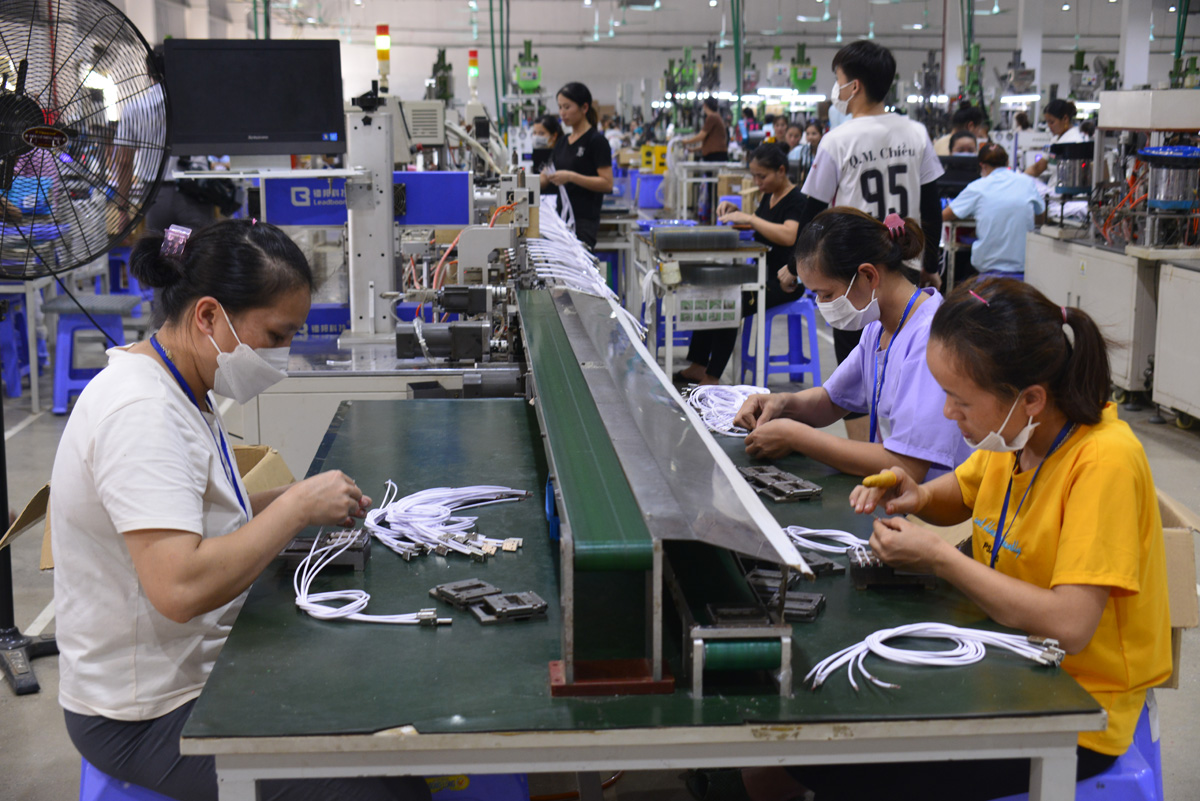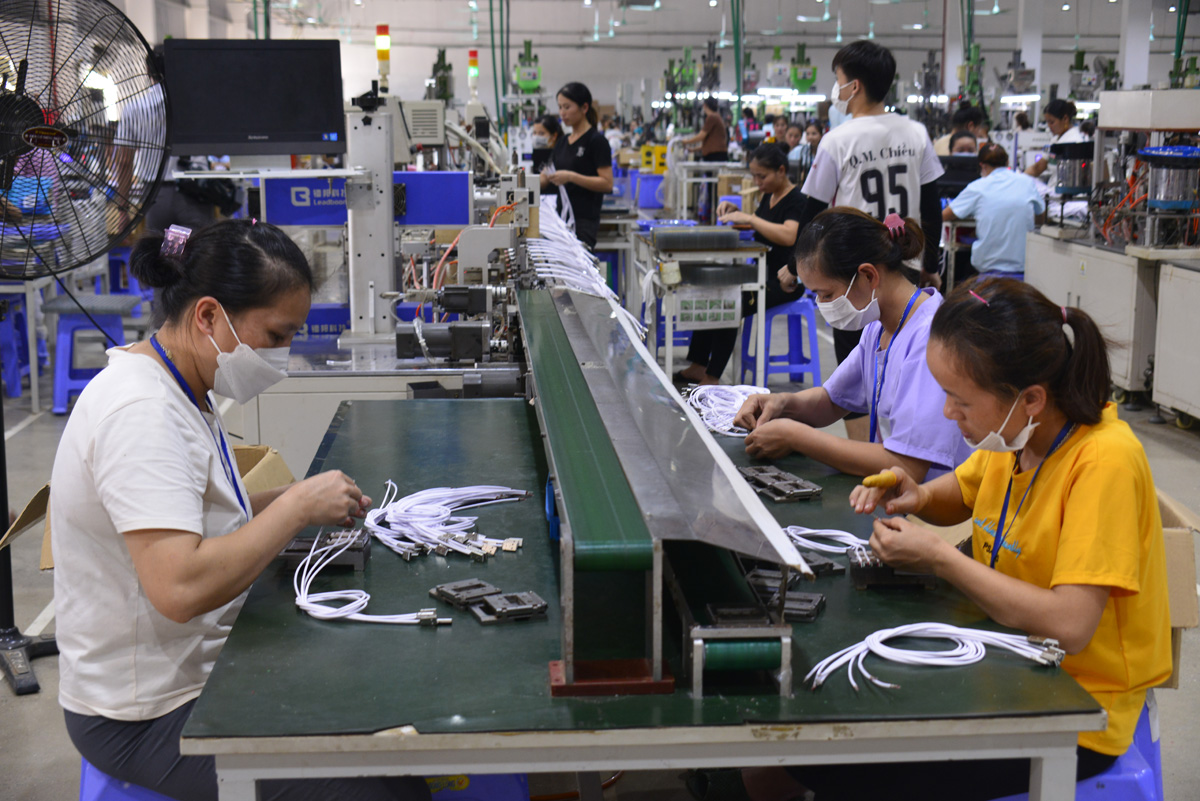
(HBO) - Lac Son is a large and densely populated district with not many favourable conditions for development. But over the past time, it has effectively applied the province's guidelines and orientations to its specific conditions. As a result, Lac Son has gained a lot of outstanding achievements in personnel work, land management and investment attraction.
Lac Son plastics factory creates jobs for about
1,000 local workers.
Lac Son is a poor district, ranking 6th out of
the 10 districts and city in terms of socio-economic indicators. The
urbanisation rate is only about 8.6%, with limited infrastructure. It has 120
micro- and small-sized businesses, of which 70 are active and have tax
declarations. Up to 90% of the population live in rural areas with difficult
conditions, and more than 20,000 labourers have to work far away.
Although the district is not a driving force of
the province, it has some potential and advantages in terms of land, natural
resources, workforce, and the rich culture of the Muong ethnic group. Lac Son
also owns Canh Tang lake - a large artificial facility in the northern region
with an area of 6 sq.km, which holds a great potential for the development of
various types of tourism.
After the district’s 27th Party Congress in
August 2020, the district Party Committee issued many resolutions on personnel
work, investment attraction, infrastructure and urban development, tourism, and
land management and site clearance, which were "bottlenecks” that needed to be
removed in order to get out of its poor district status and create development
breakthroughs.
Regarding investment attraction, the district
has rolled out a red carpet to lure more investors by accompanying and
supporting them in ground clearance and quick investment procedures in
accordance with regulations. To date, the district has attracted 31 investment projects,
including two foreign-invested ones with a combined registered capital of 11.27
trillion VND (475.3 million USD).
The district's state budget revenue has
increased continuously, from 47.4 billion VND in 2019 to 107 billion VND in
2020, and 142 billion VND in 2021. The figure is expected to hit 310 billion
VND this year./.
According to data from the Hoa Binh Provincial Party Committee, the industrial production index for the first six months of 2025 is estimated to have increased by 20% compared to the same period last year. This marks the highest year-on-year growth rate for this period since 2020.
In the first six months of 2025, Hoa Binh province’s export turnover was estimated at 1.145 billion USD, marking an 18.11% increase compared to the same period in 2024. Import turnover was estimated at $ 804 million, a 17.15% increase, which helped the province maintain a positive trade balance.
The lives of the ethnic minority farmers in Tan Lac district have gradually improved thanks to the new directions in agricultural production. This is a testament to the collective strength fostered through the professional associations and groups implemented by various levels of the district’s Farmers’ Union.
With the motto the "product quality comes first,” after nearly one year of establishment and operation, Muong village’s Clean Food Agricultural and Commercial Cooperative, located in Cau Hamlet, Hung Son Commune (Kim Boi district), has launched reputable, high-quality agricultural products to the market that are well-received by consumers. The products such as Muong village’s pork sausage, salt-cured chicken, and salt-cured pork hocks have gradually carved out a place in the market and they are on the path to obtaining the OCOP certification.
In the past, the phrase "bumper harvest, rock-bottom prices" was a familiar refrain for Vietnamese farmers engaged in fragmented, small-scale agriculture. But today, a new spirit is emerging across rural areas of Hoa Binh province - one of collaboration, organisation, and collective economic models that provide a stable foundation for production.
Maintaining growing area codes and packing facility codes in accordance with regulations is a mandatory requirement for agricultural products to be eligible for export. Recently, the Department of Agriculture and Environment of Hoa Binh province has intensified technical supervision of designated farming areas and packing facilities to safeguard the "green passport" that enables its products to access international markets.



